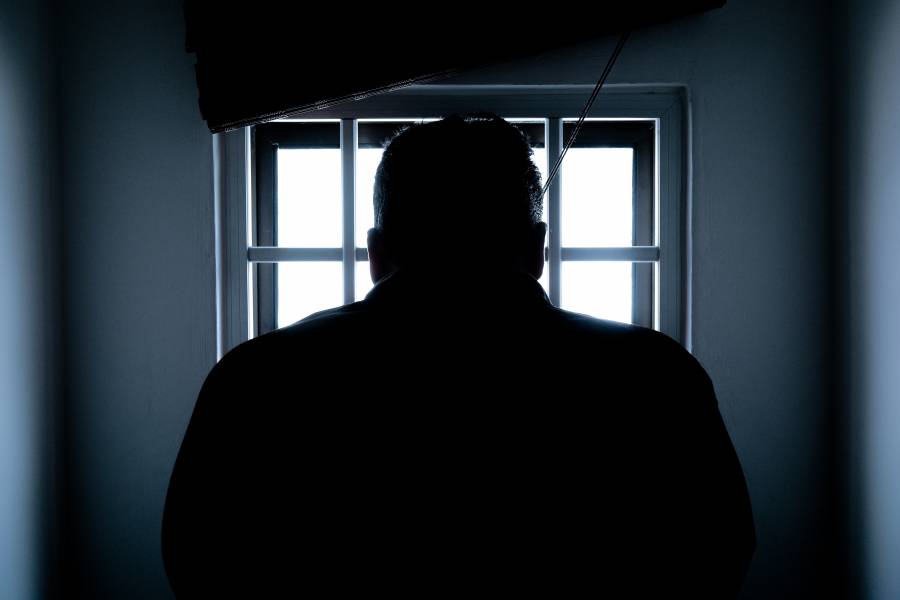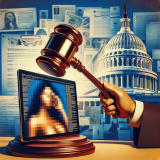The internet’s instant access to information is crucial for education, spreading ideas and activism. This makes it a significant threat to authoritarian governments, leading many countries to strictly censor websites, content, and communication. But, which countries have the strictest internet censorship? Platforms like Twitter and Facebook were central to the uprisings of 2011’s Arab Spring, a critical part of the Venezuelan protests, and have also been key aspects of many other political actions. In response, some countries have adopted even more stringent controls to try to stem the unrest. But, which countries have the strictest internet censorship?
Because internet censorship is a threat to democracy and freedom of expression, let’s take a look at which countries have the strictest controls, what measures they have in place, and how their citizens can get around these systems.
How is the internet censored?
The internet can be censored in several different ways. In the most extreme examples, such as North Korea, the majority of the population is cut off from the internet, and only a small portion of society can access its tightly controlled intranet. This system makes it virtually impossible for average citizens to access the free internet.
If adequate internet infrastructure is in place for the majority of the population, there are still ways that governments can restrict it. The two most common techniques are site blocking and content filtering. These involve entirely blocking access to websites that regulators don’t approve of and removing any information on specific topics, respectively.
These techniques can be used to suppress criticism of the regime, block resistance movements, ban ideas and content that are deemed inappropriate, stop the flow of information during political turmoil, and much more.
Sites and content can be restricted either manually or automatically with algorithms that detect and stop access to controversial material. They can also be blocked and filtered on either a permanent or a dynamic basis. Some governments may choose to block certain content during elections, political scandals, or other events when they perceive that the regime could be harmed.
Technical measures for blocking or filtering content.
Censorship rules and regulations are generally enforced by governments, but it’s often ISPs, apps, and websites that are charged with implementing them. There are some different techniques that can be used to block and filter websites:
- DNS filtering – The authorities can block access through DNS hijacking, which returns the wrong IP address, or by not resolving the domain.
- Packet filtering – Another technique involves monitoring keywords and ending TCP packet transfers if certain words are detected.
- IP address blocking – This involves blocking the connection to individual blacklisted IP addresses. It can also affect other websites hosted on the same server, even if they don’t include any inappropriate content.
- URL filtering – Certain pages can be filtered out if they contain sensitive terms in their URLs.
- Removing pages from search engine results – The authorities can pressure search engines to exclude specific websites from their results. This makes them essentially impossible to find unless a user already knows the URL.
- Resetting the network connection – When a connection is blocked by a filter, it can be cut off on both the client and server sides for a set amount of time. This can prevent other visitors from reaching the site, as well as stop the offending individual from accessing other websites.
- Disconnecting the network – Connections can be prevented in an even more comprehensive way by blocking access to routers. This can be done by turning off the hardware, or through various software-based techniques. Disconnecting the network, which completely restricts internet access in the area, and it is sometimes used by governments to shut down communication during political turmoil.
Countries with strict internet censorship.
Most countries have some level of internet censorship, but covering every single one in detail would get repetitive. Instead, we’ll just talk about the standouts – those who have the strictest systems that prevent their citizens from accessing the internet freely.
China
While China has widespread internet access, it also has one of the world’s most advanced and extensive censorship systems. To start with, it blocks many foreign websites such as YouTube, Facebook, Twitter, and Wikipedia.
Instead, China has many of its own tightly controlled platforms such as Youku Tudou (video hosting), WeChat (social media, messaging and mobile payments), and Baidu (search engine). Each of these platforms is pressured to restrict content far more stringently than their western counterparts, which hampers the flow of information on a wide range of important topics.
According to researchers from WeChatScope, some of last year’s most censored subjects included the China-US trade war, US sanctions against ZTE, and the arrest of Huawei’s CFO in Canada. These are in addition to its usual taboo topics like the Tiananmen Square Massacre, pornography, the Dalai Lama, the independence of Tibet and Taiwan, freedom of speech, and much more.
Not only are these and other topics tightly controlled on Chinese platforms, but site blocking and content filtering is also in place to prevent Chinese internet users from accessing the information through other avenues.
Blocking access to controversial material isn’t all that the Chinese authorities do. They also extensively monitor the internet access of their citizens. These capabilities are often used to prevent protests and jail dissidents.
North Korea
China may have the most advanced censorship systems in place, but it’s North Korea that offers its citizens the most limited access. Because the country is so insular, it’s hard to find accurate numbers of internet users. It appears that access is still limited to the elite class and specific institutions.
Although many North Koreans now have mobile phones, it’s thought that most of these users still aren’t connected to the internet. Of those who do have access, it is limited to a national intranet known as Kwangmyong.
This intranet offers access between universities, libraries, government departments, and a few locally hosted websites. The available content seems to be severely restricted, much of it infused with North Korean propaganda.
According to Business Insider, an even tinier fraction of the upper echelon have access to the open internet as we know it. It seems like its use is limited to high government officials and the military.
Cuba
Until recently, Cuba also had very limited internet access for the bulk of the population. One of the most significant steps forward came in 2015 when the government began its roll-out of-of public Wi-Fi hotspots.
In late 2018, 3G was also introduced, allowing Cubans to access the internet through their data plans. Despite the increased availability, the internet is still costly compared to the average salary.
There is also strict censorship in place, including blocks against publishers and bloggers that cover Cuban human rights abuses or criticize the political system. This mainly seems to affect local organizations, while many foreign outlets are permitted.
Social media platforms like Facebook and WhatsApp are allowed, however, Skype is blocked for some strange reason. Even the Tor network is accessible in Cuba, so those that can afford the internet have ways of getting around the restrictions.
Iran
The Iranian Government tightly controls its citizens’ internet access. It blocks many western platforms, such as YouTube, Twitter, and Facebook, with others banned on occasion as well. On top of this, pornography and gambling sites are also forbidden. Users who try to access this content over the regular internet will first receive a warning. Subsequent attempts may lead to prosecution.
The authorities restrict access to many foreign media channels, as well as sites that express criticism of the government. Several sites that are considered anti-Islamic or taboo within the culture, such as those that discuss LGBT issues, are also forbidden.
Citizens are heavily monitored, and the authorities also restrict access during times of unrest, such as when Instagram and Telegram were temporarily blocked in 2017. Iran also throttles its internet during times of protest to limit communication. Many privacy tools are also banned.
The future of Iranian internet censorship is not looking positive, with a new government department that seems to be tasked with exerting even more control over the internet. On top of this, the Iranian government is almost ready to unveil its national intranet, which could restrict content even further and make it easier for the authorities to throttle access to international media
Saudi Arabia
Saudi Arabia also has high levels of internet censorship. All international traffic is channeled through the King Abdulaziz City for Science and Technology, where it passes through a content filter that removes information deemed inappropriate by the government for either moral or security reasons. Note that the regime’s definitions of immoral or dangerous content are far more extensive than how most people in the west would define them.
The filter restricts sites about Shia Islam, drug use, LGBT rights, pornography, gambling, circumventing the filter, criticism of the Kingdom, and much more. More recently it has also been censoring news about the murder of journalist Jamal Khashoggi in Turkey’s Saudi Arabian embassy.
Progressive activists are monitored and have even been detained for their social media posts. Wikipedia has been blocked in the past, although it’s currently available. On top of this, the government previously blocked apps like Viber, WhatsApp, and Facebook, but they are now available again.
Vietnam
The Vietnamese Government has incredibly tight control of the flow of information within the country. Its systems may not be as sophisticated as China’s, but its heavy-handed punishments help to stem dissent and controversial opinions.
The government blocks a broad range of content under two separate wings. The Ministry of Public Security restricts access to politically controversial content such as the websites of banned political parties, human rights organization and those that are critical of the government. The Ministry of Culture and Information blocks content that features high levels of violence, pornography, and superstition.
Both organizations and individuals are liable for any content they create, share or store, and could face severe repercussions if it is deemed to affect the nation’s security, social order, economy, or its DNS servers. The censor’s often target prominent websites or blogs, including both domestic and international publications.
Censorship is mostly performed at the ISP level, which involves putting content deemed inappropriate on blacklists. When someone visits a blocked page, they may either see an error message or a notice that the page has been blocked.
The government has also pressured companies to remove content deemed inappropriate. In 2018, it had Facebook remove 670 accounts, and Google take down 5,000 YouTube videos. Both Facebook and Instagram have also been periodically blocked during protests. However, they are generally available at other times.
In 2010, the government passed a law requiring public WiFi providers – such as internet cafes, hotels, and other businesses – to track their users with monitoring software.
One of the most worrying developments is a law passed in 2018 that went into action at the start of this year. The regulations further limit online expression, particularly those activities which are deemed as antithetical to the state.
The law will also force social media organizations to store their Vietnamese data within the country, and it obligates them to remove offending content within one day of receiving notice. The legislation also pressures them to hand over user data.
On top of these strict laws, the Vietnamese authorities have also imprisoned countless activists for such minor infractions as posting social media statuses that were critical of the regime. These strict punishments compliment the technical restrictions, helping to limit the flow of information within the country.
Other countries
If you’re not from one of the above nations, you may be misled into thinking that you have access to free and open internet. For the most part, this is not the case, because even the most progressive nations have their own restrictions.
Countries such as the UK, Sweden, and others block child pornography, while both France and Germany restrict access to hate speech. While many would view these restrictions as healthy for society, it’s still important to be aware that blocks and filters are used in even the most democratic countries.
How to get around internet censorship.
If you are a resident or just traveling through one of these heavily censored countries, you may want to take measures so that you can reach the free internet. Be aware that doing so may be illegal, so do some research on the relevant nation’s laws and weigh up the risks beforehand.
Alternate locations
In certain situations, censorship can be circumvented by either the source of the information or the individual seeking it out. It all depends on how the content is being blocked. If a specific website URL is being filtered out by the censorship system, site administrators may be able to get around it by hosting the content at another location. This isn’t the best solution, because censor’s can just block the new URL as well.
Sites can also be copied, cached or mirrored and stored elsewhere. If the original has been blocked, users can seek out these alternatives.
Proxy servers
If a website is blocked, proxy servers may provide another way to access the content. When a user visits a proxy website such as Proxysite.com, they can seek out whatever content they are looking for through the proxy.
Instead of directly loading the content from the server it is hosted on, they load it through the proxy server instead. This obscures the actual site from the filter, which can allow users to reach blocked content. However, most restrictive governments also block proxy sites, so it can be challenging to find one that still functions.
SSH Tunnels
SSH is a protocol that can be used to circumvent censorship. It encrypts data between the client and the server, so filters can’t actually see what a user is accessing. While the authorities can’t access the encrypted data, in countries such as China, SSH connections can still be disrupted.
VPNs
A VPN is similar to an SSH tunnel in that they both provide encrypted tunnels between the client and server. However, they rely on different protocols. VPNs are one of the most commonly used tools for getting past online censorship.
Be aware that some governments use more advanced detection and blocking mechanisms, so you may find that it’s more difficult to circumvent censorship in some countries than in others.
China has one of the world’s most advanced systems when it comes to blocking VPNs, so potential users in China need to be particularly careful when selecting their VPN service. Not all VPN services are created equal, and many may not work.
Because China’s systems are more sophisticated than most others, it’s generally a safe bet that if it works in China, it will probably work in your country. Despite this, if possible, it’s best to test a service before you commit to a provider
This list of VPNs was working in China when the article was published, but you need to be aware of its limitations. VPNs can be finicky, and whether they work in your case can depend on your exact location, internet service, and configuration.
It’s also important to note that China is continuously adapting and improving their systems, so a VPN that makes it through the Great Firewall today could hit a brick wall tomorrow. If using a VPN is essential for your daily life in China or any of the other countries, you may want to avoid a long-term subscription – changes in a country’s blocking systems could lead to you paying a monthly fee for a VPN that you can’t even use.
Tor
Tor is another system that enables users to get around censorship. It encrypts data in layers and sends it through a series of random nodes, each one stripping off a layer of encryption. This process prevents the censor’s from being able to see what content a user is accessing, which allows them to visit restricted sites freely.
Many countries block standard configurations of Tor, so accessing the network may not be so straightforward. In a country with advanced censorship systems such as China, users may be able to access the Tor network through a meek bridge, although many people report difficulties in getting it to work.
Should you circumvent censorship?
In most countries, internet censorship can be avoided relatively easily. All it takes is a little bit of technical know-how and maybe a subscription service. Since the systems in place generally aren’t too difficult to get around, the biggest question isn’t whether you can slip past the filters, but whether you should.
Censorship is undoubtedly harmful to democracy and limits freedom of expression, however, it’s crucial to consider whether circumventing it is genuinely worthwhile. In some cases, slipping past filters is illegal. While most governments don’t seem to punish minor infractions, there can be severe repercussions if these tools are used to criticize the government or spread controversial content.
In some cases, avoiding censorship can do tremendous amounts of public good. Despite this, people need to be aware of the risks involved and make their decisions accordingly.










